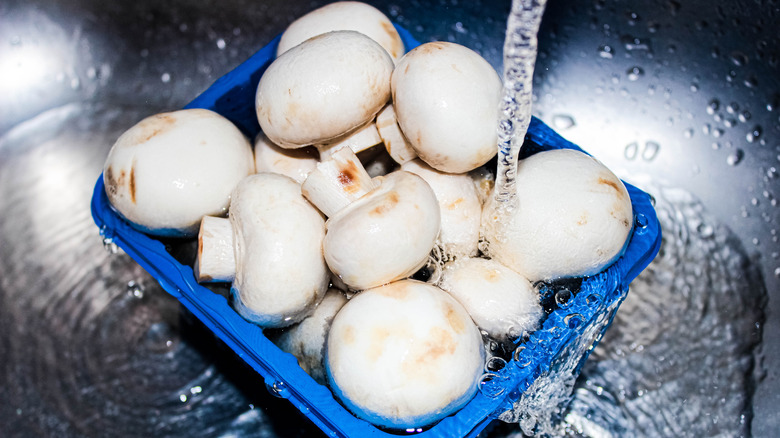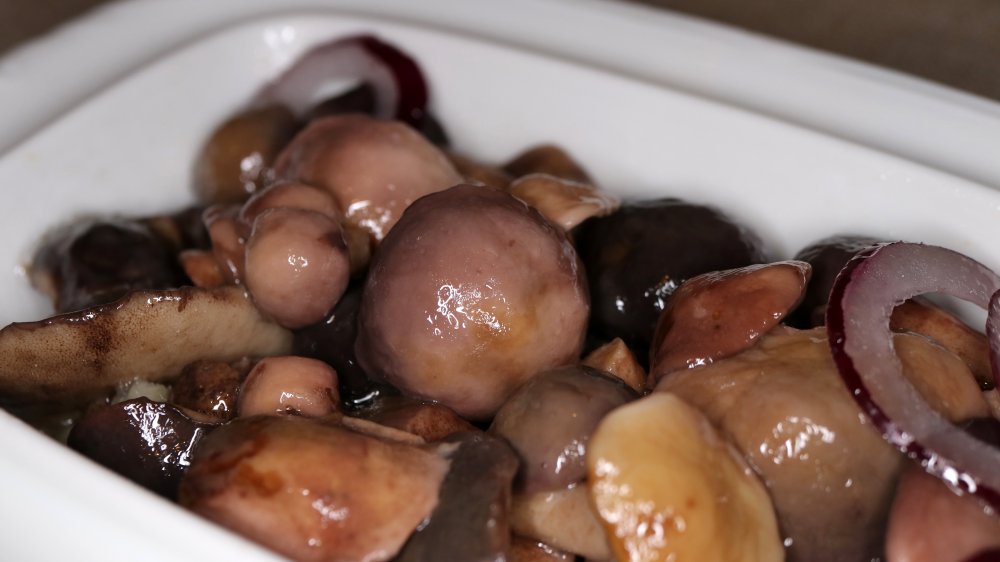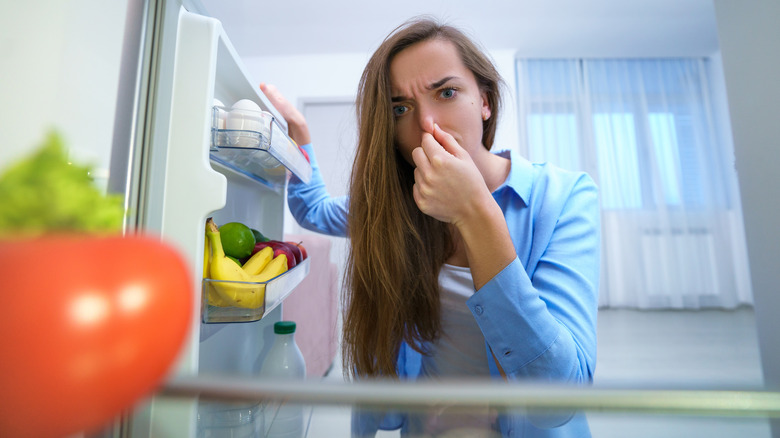Here's How To Tell If Your Mushrooms Have Gone Bad
Mushrooms are the kind of food that can slip into the back of your refrigerator and sit until they are slimy if you're not careful. But there are so many delicious ways to cook with mushrooms that you'll want to keep them on hand to toss into stir fries, omelets, pasta dishes, and more. Throwing mushrooms in with whatever you are cooking is a fast and easy way to add more "meat" to your meal without adding a ton of calories, per Healthline.
And while it might just be easier to buy dried mushrooms and reconstitute them, you should know what to look for when mushrooms go bad — especially if you don't want to accidentally get sick.
If you do happen to eat a bad mushroom, it most likely won't be a huge deal. Mushroom poisoning from store-bought mushrooms is very unlikely, according to Leaf. However, if you eat mushrooms that are well past their prime, you might get an upset stomach or feel sick. So, try to store them properly and use them within a reasonable timeframe, advises Leaf. You'll keep yourself and your family safe, and you'll get the most nutritional value out of your mushrooms, too.
Check the expiration date
The easiest way to know fresh mushrooms are bad is to check the packaging's expiration date, if it has one. If you're past that, it's a good sign that it's time to toss that container of baby bellas.
If your mushrooms don't have an expiration date, you can go by the date you brought them home from the store. Fresh mushrooms will keep for five to seven days in the fridge, according to Greatist. To make them stay fresh longer, the outlet suggests storing mushrooms in a paper bag, rather than wrapped in plastic. And while it's tough to beat the convenience of pre-sliced mushrooms, note that those will stay fresh for less time in your fridge than whole mushrooms will.
The Spruce Eats also suggests storing mushrooms in the main part of your fridge, rather than in the vegetable crisper, where there's too much moisture.
Check for a slimy texture
One of the easiest signs to look for in bad mushrooms is a slimy texture. This typically happens when the mushrooms have been in the fridge for too long, but they're usually not dangerous to eat at this stage, either. It's just less appetizing, and most people throw them out at this point. (We won't blame you for not wanting to eat a slimy mushroom!)
And if each of the whole mushrooms looks dark or has dark spots popping up, they've most likely gone bad, advises Delishably. Mushrooms that are past their prime might start to wrinkle, too, notes Greatist. If you're determined to avoid food waste, a few slightly dried-out mushrooms might be okay. But if all of the mushrooms in the package are really shriveled up, just get rid of the fungi — when it comes to food safety, it's better to be safe than sorry.
If the mushrooms don't look bad, but they've been in your fridge for two weeks, you should use them pretty quickly. After that, the mushrooms will really start to show signs of going bad, Delishably notes. At that point, you might notice changes in odor, in addition to the textural changes you can see on your mushrooms.
Check for a strong odor
Your sense of smell is another good indicator. Mushrooms generally don't have a strong odor, though you might notice a slight smell if you put your nose right up to the package. But if the mushrooms give off a powerful, noticeable odor the second you open the package (or even open the fridge), then it's time to toss them, says Delishably.
It's worth noting that different types of mushrooms have different lifespans, too. According to Greatist, white button mushrooms will spoil faster than cremini or portobello mushrooms, so keep that in mind if you're at the store and know you won't be using those fresh mushrooms right away. And if you do get home and realize you can't use those fresh mushrooms in time, you can always freeze them for up to a year, Greatist notes.
And if you do think you've eaten a mushroom that's past its prime, or you think you may have food poisoning, the CDC advises seeing a doctor if you have a high fever or frequent vomiting. Other signs of food poisoning include dehydration and diarrhea. In short — if you're not sure whether or not those mushrooms, or any wilted-looking vegetables, are still good, it's not worth the risk.



